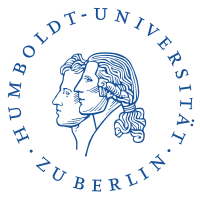Humboldt University of Berlin
The university was founded in Berlin in 1810, and the foundation concept which Wilhelm von Humboldt had put forward made it the "mother of all modern universities".
This concept envisaged a “Universitas litterarum” which would achieve a unity of teaching and research and provide students with an all-round humanist education. This concept spread throughout the world and gave rise to the foundation of many universities of the same type over the following 150 years.
The concept of the academic and statesman Wilhelm von Humboldt was influenced, among others, by the reform ideas of the philosopher Johann Gottlieb Fichte, the first vice chancellor of the University, and by the theologian and philosopher Friedrich Schleiermacher.
At the outset, Berlin university had the four classical faculties of Law, Medicine, Philosophy and Theology. The first academic term began with 256 students and 52 academic staff. Professors such as Georg Friedrich Wilhelm Hegel (Philosophy), Karl Friedrich von Savigny (Law), August Boeckh (Classical Philology), Christoph Wilhelm Hufeland (Medicine) and Albrecht Daniel Thaer (Agriculture) shaped the profile of the individual faculties in accordance with Humboldt’s concept.
Partly due to the influence of the natural scientist Alexander von Humboldt, the University pioneered the introduction of many new disciplines. The chemist August Wilhelm von Hofmann, the physicist Hermann von Helmholtz, the mathematicians Ernst Kummer, Leopold Kronecker, Karl Theodor Weierstrass (the “triple star of mathematics”) and the medical scientists Johannes Müller and Rudolf Virchow became known in their specialist areas far beyond Berlin University. Later, a total of 29 Nobel Prize winners did some of their scientific work at Berlin University, including Albert Einstein, Emil Fischer, Max Planck and Fritz Haber. And many famous people such as Heinrich Heine, Adelbert von Chamisso, Ludwig Feuerbach, Otto von Bismarck, Karl Liebknecht, Franz Mehring, Alice Salomon, Karl Marx and Kurt Tucholsky were also enrolled at the “Alma mater” of Berlin. Heinrich Mann, the writer, became the first honorary doctor of the University after the end of the Second World War.



